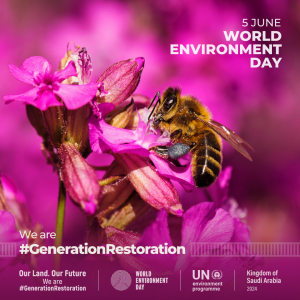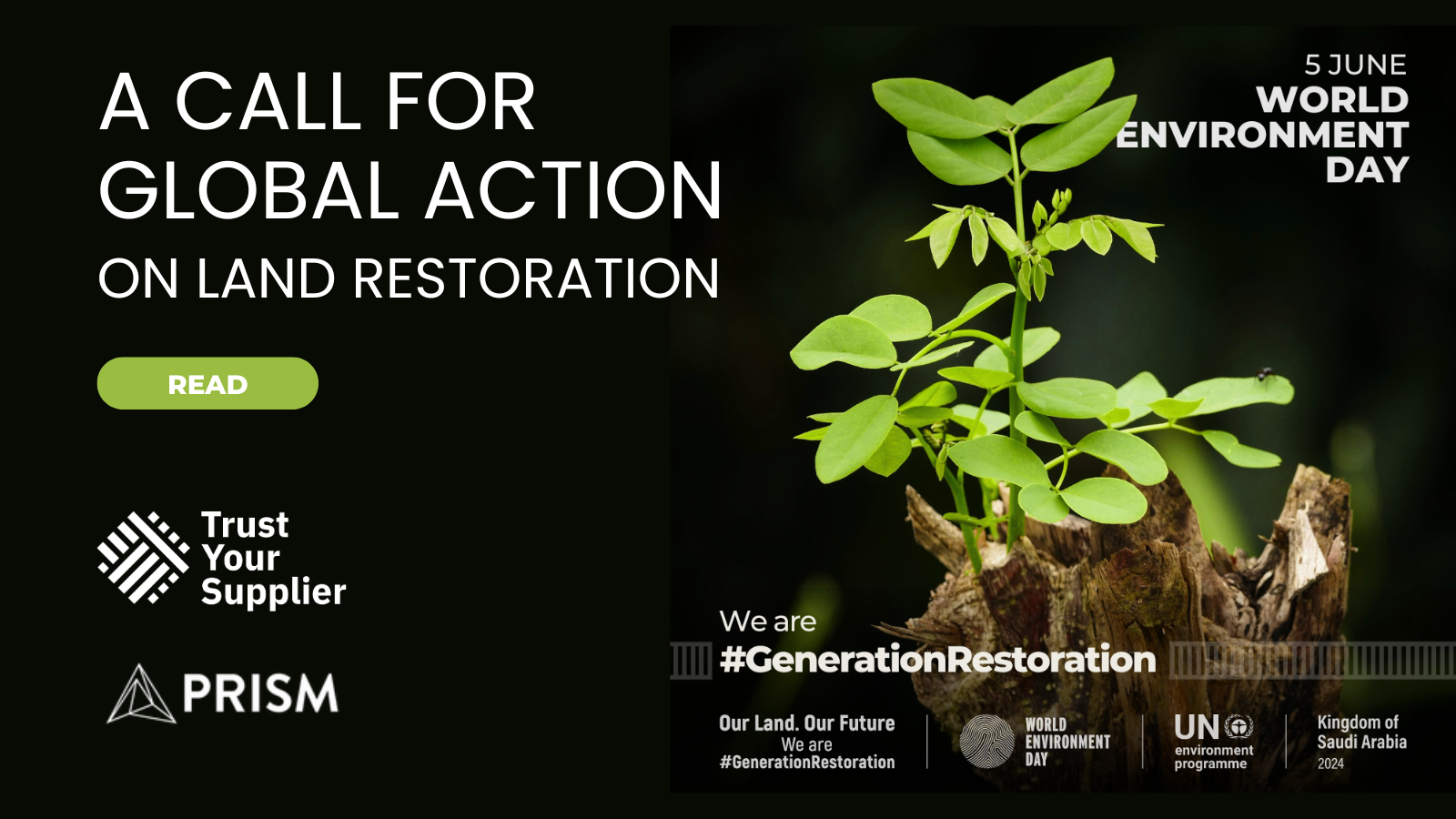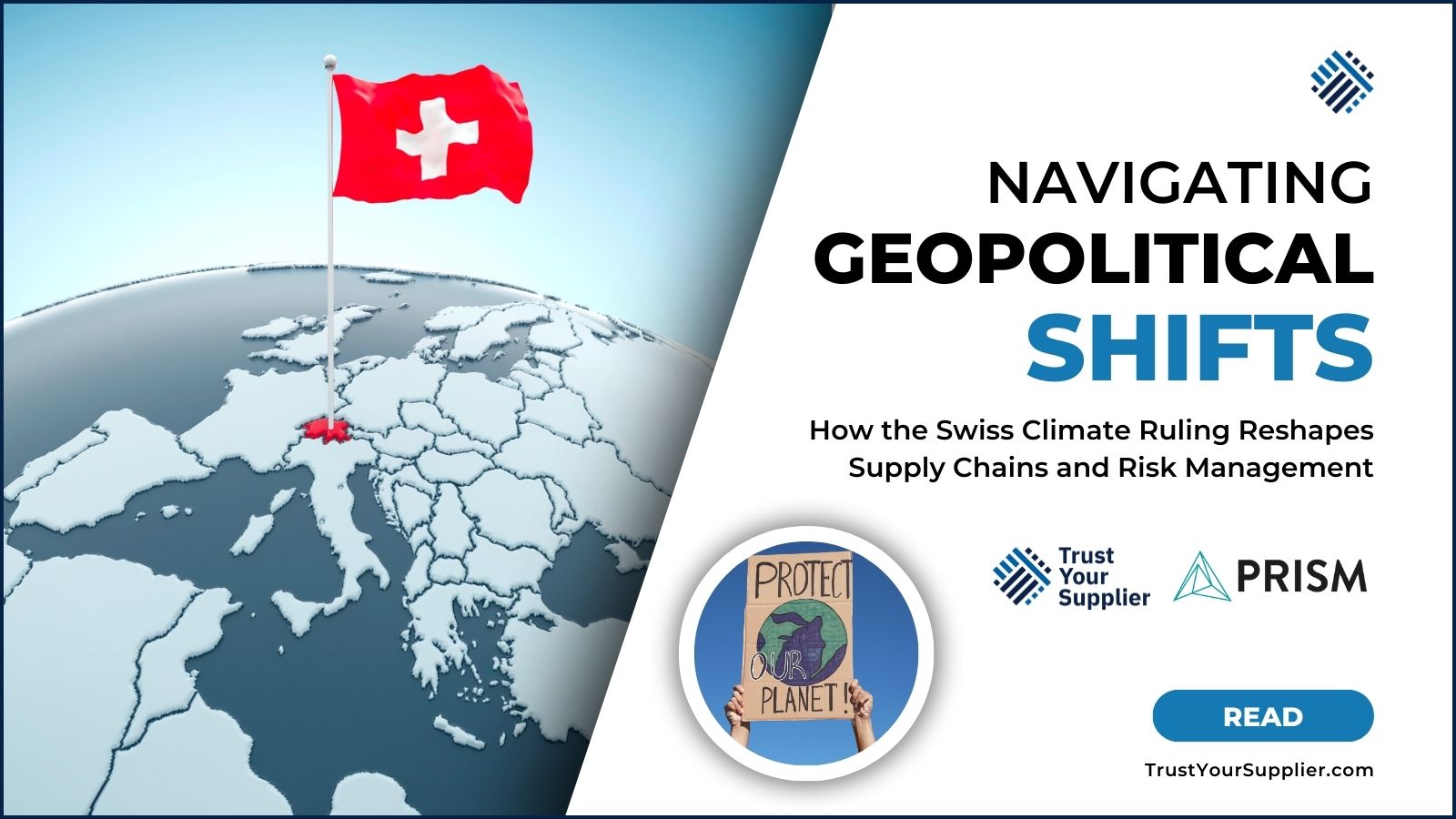by Michelle Armstrong, TYS Global VP of Value Engineering and George Coe, Prism Cofounder & Partner
World Environment Day (WED), observed on June 5th every year, is the United Nations’ principal platform for encouraging global awareness and action for environmental protection. This year, the event is hosted by Saudi Arabia, focusing on the crucial themes of land restoration, desertification, and drought resilience.
The 2024 theme underscores the urgency of addressing land degradation, a pressing issue impacting nearly half of the world’s population and threatening global GDP. Land restoration is vital not only for ecological balance but also for the socio-economic well-being of billions of people. The initiative aims to restore one billion hectares of degraded land, which could significantly bolster carbon storage, enhance biodiversity, and improve livelihoods and food security worldwide (UNEP – UN Environment Programme) (UNEP – UN Environment Programme).
Geopolitical Context
WED 2024 and its chosen focus are of particular significance as climate issues become a growing component of geopolitical risks to supply chains.
TYS partner, PRISM, a geopolitical risk analysis firm focusing on supply chains, said this was an important event to highlight environmental issues beyond the narrower focus on the energy transition that dominates many supply chain discussions. Extreme weather events continue to cause widespread disruptions in key supply chain locations around the world and issues like droughts and desertification are set to rise even further. Such issues cause disruptions in and of themselves, but can also contribute indirectly to driving geopolitical conflict.
However, PRISM notes that the WED will also act as a forum to collaborate on the policy response in the face of growing regulatory fragmentation that risks causing higher costs and greater disruption risk for supply chains.
For example, EU climate rules impacting supply chains like the Carbon Border Adjustment Mechanism and the Deforestation Law are already forcing faster climate policy change in countries looking to export to Europe. The differing pace of progress around the world risks forcing supply chain leaders to adjust their footprints or face higher costs.
Global Campaigns and Local Actions
In conjunction with WED, the United Nations Environment Programme (UNEP) and Saudi Arabia have launched several campaigns to promote land restoration. These efforts are part of a broader strategy to mitigate the triple planetary crisis of climate change, biodiversity loss, and pollution. Elizabeth Mrema, Deputy Executive Director of UNEP, emphasized the importance of replanting forests, rewetting marshes, and reviving soils to restore ecosystems and combat land degradation effectively (UNEP – UN Environment Programme).
Role of Trust Your Supplier (TYS) and Aggregated Data
Trust Your Supplier (TYS) can play a pivotal role in supporting these global environmental initiatives. By leveraging its platform for supplier information management, TYS can aggregate critical data from various third-party sources to ensure transparency and sustainability in supply chains. Here’s how TYS can contribute:
Data Aggregation and Analysis: TYS can compile data from suppliers worldwide, providing insights into sustainable practices and compliance with environmental standards. This data can be used to monitor progress toward land restoration goals and identify areas needing improvement.
Promoting Sustainable Practices: By verifying and promoting suppliers who adhere to sustainable practices, TYS can encourage more businesses to adopt environmentally friendly methods. This can lead to a significant reduction in practices that contribute to land degradation and deforestation.
Facilitating Global Cooperation: TYS’s platform can serve as a collaborative hub where businesses, governments, and NGOs share data and strategies for land restoration. This collaboration is essential for scaling up efforts to combat desertification and drought resilience globally.
Tracking and Reporting: TYS can provide robust tracking and reporting tools that help organizations measure the impact of their sustainability initiatives. Accurate reporting ensures accountability and helps maintain the momentum of environmental campaigns.
Global Commitments and Future Outlook
Countries worldwide have pledged to restore vast areas of degraded land. If these commitments are fulfilled, the environmental benefits could be enormous. For instance, restoring just 15% of converted lands could prevent up to 60% of expected species extinctions (Mirage News). The upcoming UN Convention to Combat Desertification’s Conference of the Parties (COP16) in Riyadh further aligns with this year’s WED theme, aiming to accelerate progress toward these restoration goals (UNEP – UN Environment Programme).
World Environment Day 2024 is a pivotal moment for global environmental action, particularly in the realm of land restoration. By uniting under this year’s theme, the international community can make significant strides in reversing land degradation, fostering biodiversity, and enhancing climate resilience. Saudi Arabia’s leadership in this global effort exemplifies the critical role nations must play in safeguarding our planet for future generations. Trust Your Supplier’s data-driven approach can significantly support these efforts, ensuring sustainable practices and facilitating global cooperation for a greener future.
Learn more about our TYS partner Prism.
For more information on World Environment Day and related initiatives, visit the official UNEP website and the World Environment Day campaign site. Join #GenerationRestoration – together, let’s restore & safeguard our land & soil.
#TYS #Prism #ESG #Sustainability #WorldEnvironmentDay



